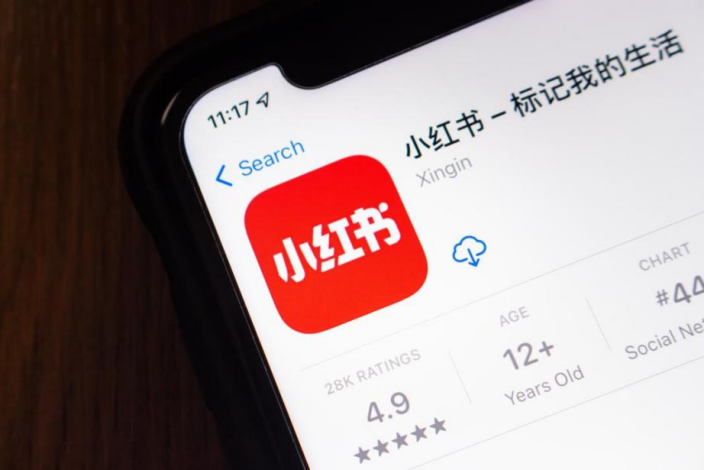Little Red Book (Xiaohongshu): Your Ultimate Social-Commerce Companion for Seamless Customer Connection
In this article, we will delve into the latest developments within Little Red Book (Xiaohongshu) and explore how brands and merchants can effectively harness its potential.
by Azoya
When discussing social media commerce platforms in China this year, two giant platforms cannot be overlooked: Douyin and Xiaohongshu, which is literally translated into Little Red Book (LRB) and compared with Western applications Instagram and Pinterest. Douyin (Chinese TikTok) boasted over 700 million daily active users (DAU) in 2022, which is seven times the number of LRB users. Notably, Bytedance, the parent company of Douyin, has even developed an app called Kesong, which closely emulates LRB. What makes this app so intriguing and worthy of study? In this article, we will delve into the latest developments within LRB and explore how brands and merchants can effectively harness its potential.

Originating as a user-generated content (UGC) community, LRB accurately targets its audience
According to Qiangua Data, 89% of LRB users are female, while only 11% are male. Additionally, over 72% of them were born after 1990, and 50% reside in first or second-tier cities. This audience comprises a youthful and dynamic group with substantial consumption potential.
The audience plays a crucial role in determining the trending topics on LRB, spanning categories such as beauty, fashion, exercise, pets, mom & baby, and household equipment. Users willingly share their experiences, tips, and sentiments, fostering discussions around various topics to form a thriving content ecosystem. This UGC offers valuable tags and categories that algorithms can use to segment user groups, creating a robust database to target audiences more accurately.
It's not only a social media, but also a search engine
Due to comprehensive topics on LRB, an increasing number of users now perceive LRB as an unconventional search engine. The dominant force in the Chinese search engine landscape is Baidu, boasting a market share of 39.4% across all platforms and 48.7% on mobile devices as of April 2023. Baidu aligns with the conventional approach, emphasizing the authority of news sources and the vastness of its data repository, while LRB functions more like a lifestyle-oriented search tool. For instance, you might search for "news today" on Baidu and a "makeup tutorial" on LRB.
The huge user base forms the foundation for LRB's evolution as a search engine. As of 2023, LRB’s monthly active users (MAU) surpassed 200 million, indicating substantial demand for search services. Furthermore, individuals frequently seek information related to their interests in fashion, beauty, travel, and food, all of which are daily-life scenarios with a high search frequency. LRB distinguishes itself by providing more specialized and trusted answers among audiences who share similar interests and experiences.
Furthermore, users can gather information not only from the posts and short videos but also from the comments sections. Being a community-driven platform, LRB encourages users to actively participate by sharing their own opinions, thereby aiding one another and enhancing the social magnetism of LRB. This social attribute not only improves the overall user experience but also contributes to more refined, relevant and valuable search results.

LRB’s transformation into a social-commerce platform
Previously, LRB primarily operated as a lifestyle-sharing and decision-making platform for purchases, generating its main revenue through advertising fees. However, it lacked an integrated transaction system, as users would often consult LRB for information then shift to other e-commerce platforms to order products, resulting in revenue loss for LRB. Consequently, in 2016, the platform made the strategic decision to establish its own e-commerce system.
LRB ventured into the self-operated e-commerce domain with models such as the "welfare service" ('福利社' in Chinese) and the vertical e-commerce platform "Oasis" ('小绿洲' in Chinese), aligning these efforts with community trends. Unfortunately, they encountered formidable competition from integrated platforms, leading to the decision to discontinue these ventures, with plans to shut down later this year.
To harness the unique advantages of LRB's social attributes and its specific industries, the platform embarked on the development of buyer e-commerce. This approach involves gathering audience demands and facilitating the provision of relevant products. Kenan, the COO of LRB, defines these buyers as individuals who can be store owners, small and medium-sized merchants, or any content producer looking to recommend products, and services, and engage with customers. These buyers combine their accounts and stores, enabling them to post content about products, embed purchase links, or guide audiences to stores integrated within their accounts.
What's notable is that LRB takes a different approach to content distribution, aiming to empower small and medium-sized merchants. Instead of prioritizing top key opinion leaders (KOLs), the platform equally distributes traffic to qualified posts. This strategy fosters a more vibrant and dynamic content ecosystem, encouraging the creation of engaging and compelling content.
Another distinctive approach that LRB has embraced to align with the platform's characteristics is a unique style of livestreaming known as "quiet selling." This approach stands in contrast to traditional live streams that often emphasize low prices and limited-time deals, typically featuring a noisy and urgent atmosphere to encourage immediate orders. In contrast, "quiet selling" places greater emphasis on product quality, brand storytelling, and cultural elements.
For instance, top KOL Teresa Cheung in China used this approach when introducing an eyeshadow palette. Instead of rushing through sales pitches, she carefully showcased each colour, drawing on art and cultural references. Her livestream debut on LRB garnered over 1 million views and generated 50 million yuan ($7 million US) in sales. This approach resonates particularly well with LRB's target audience: young females from high-tier cities. These users prioritize not only price but also the benefits products can bring to their personal lives. They appreciate the value of product quality, brand narrative, and cultural significance.
How can brands & merchants leverage LRB?
1. Understand your target audience and gather their feedback to adapt product strategies effectively.
LRB's nature as a lifestyle sharing and purchasing decision-making platform simplifies the process of collecting authentic user comments compared to traditional e-commerce platforms. This feedback can also be harnessed for co-creation, integrating user opinions into the design, production, and service aspects, thereby fostering trust among consumers and enhancing brand loyalty. U.S. and global brands in the beauty, fashion, food, pet, mom & baby, and home categories in particular may want to consider establishing a presence on LRB.
2. Establish connections between your brand and everyday life scenarios and emotions. According to Chanmama, a data analysis system for social media platforms, LRB accounts with a smaller following can gain viral traction by creating content focused on product comparisons and guidance. Brands can leverage this approach during the initial stages of audience building. Additionally, Chanmama’s data reveals that posts addressing emotional needs account for more than 74% of recent viral content. Hence, effectively conveying brand and product narratives becomes a crucial consideration to resonate with LRB audiences.
3. Explore a livestreaming style that aligns with the platform's trends.
In 2023, an estimated 373.7 million digital buyers in China opt for livestream-based purchases, reflecting a 42.1% penetration rate, making live commerce an inevitable avenue for sales. To cater to the LRB audience, which places a higher emphasis on quality and experience over price, brands and merchants can draw inspiration from figures like Teresa Cheung. This soft sell approach entails a focus on cultural elements and the stories behind products, offering a more enriching and meaningful livestream experience.
On August 24th of this year, LRB launched 'E-Commerce Partner Week' under the slogan 'the era of buyers is coming,' signaling a clear path for its e-commerce development. It is within our expectations that LRB has the potential to evolve into a significant social-commerce platform, given its distinctive style and popular approach.